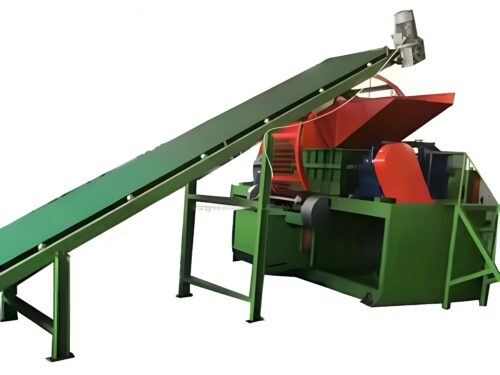Used Rubber Machines Tyre Recycling Plant In India

India, like many other developing nations, faces significant challenges in managing its waste, particularly in the realm of rubber and tire disposal. The sheer volume of discarded tires presents not only an environmental hazard but also a missed opportunity for resource recovery. However, with the emergence of used rubber machines and low-cost tyre recycling plants, there’s a promising avenue for addressing these challenges sustainably. In this blog, we’ll delve into the significance of these innovations and how they’re shaping the landscape of tire recycling in India.
The Problem –
Tire waste poses a multifaceted problem. Discarded tires often end up in landfills, where they accumulate and pose environmental hazards such as leaching of toxic chemicals and providing breeding grounds for pests and mosquitoes. Moreover, tire fires, a common occurrence in landfills, release harmful pollutants into the air, contributing to air pollution and public health risks. In addition to environmental concerns, the disposal of tires also represents a loss of valuable resources.
The Solution –
The advent of used rubber machines and low-cost tyre recycling plants offers a solution to this pressing issue. These technologies enable the conversion of used tires into valuable products, ranging from recycled rubber for various applications to alternative fuels.
1. Used Rubber Machines: Used rubber machines play a pivotal role in tire recycling by facilitating the processing of discarded tires into reusable materials. These machines encompass a range of equipment, including tire shredders, granulators, and crumb rubber production lines. Tire shredders, for instance, break down tires into smaller pieces, while granulators further refine the material into granules suitable for various applications. Moreover, advancements in technology have led to the development of high-efficiency rubber machines that optimize resource recovery while minimizing energy consumption and emissions.
2. Low-Cost Tyre Recycling Plants: Low-cost tyre recycling plants offer an economical means of establishing tire recycling facilities, particularly in regions with limited financial resources. These plants are designed to be cost-effective without compromising on performance or environmental compliance. By utilizing efficient processing techniques and modular designs, low-cost tyre recycling plants enable small and medium enterprises (SMEs) to enter the tire recycling sector and contribute to waste management efforts.
Benefits of Used Rubber Machines and Low-Cost Tyre Recycling Plants –
The adoption of used rubber machines and low-cost tyre recycling plants yields numerous benefits, both environmental and economic:
i) Waste Reduction: By converting used tires into valuable products, these technologies help mitigate the environmental impact of tire waste and reduce the burden on landfills.
ii) Resource Recovery: Recycled rubber derived from tire recycling can be utilized in various applications, including construction, automotive, and manufacturing, thereby conserving natural resources.
iii) Economic Opportunities: The establishment of tyre recycling plants creates employment opportunities and stimulates economic growth, particularly in rural areas where waste management infrastructure may be lacking.
iv) Energy Savings: Recycling tires consumes less energy compared to manufacturing new rubber products, contributing to energy conservation and reducing greenhouse gas emissions.
v) Pollution Prevention: By diverting tires from landfills and minimizing the risk of tire fires, tyre recycling plants help mitigate air, water, and soil pollution, safeguarding public health and the environment.
Conclusion –
The integration of used rubber machines and low-cost tyre recycling plants represents a significant step forward in addressing the challenges associated with tire waste in India. By harnessing these technologies, stakeholders can transform tire recycling into a sustainable and economically viable endeavor.
For more information Visit Here

 Compression Molding
Compression Molding

